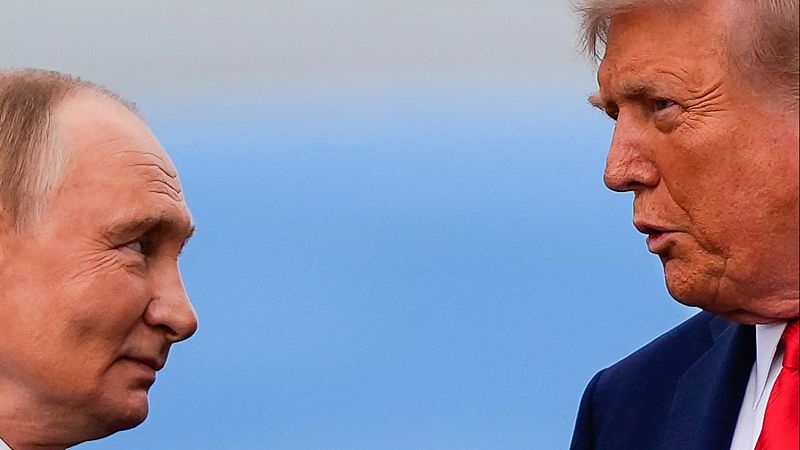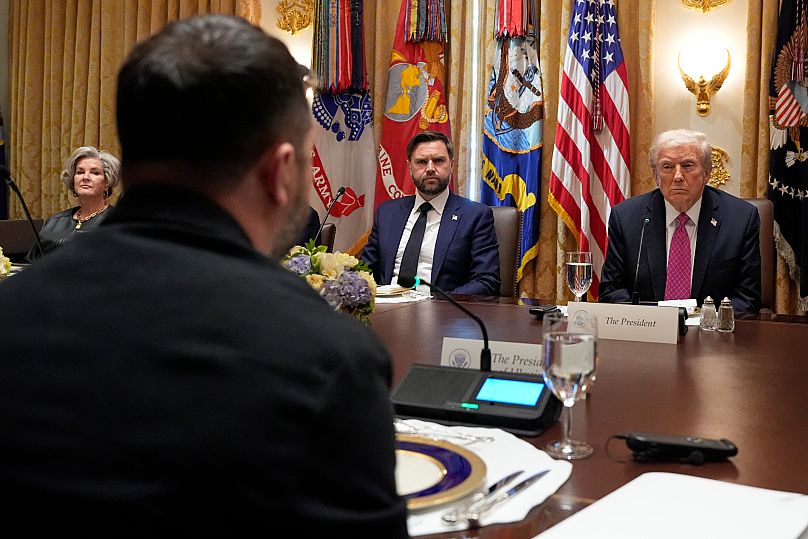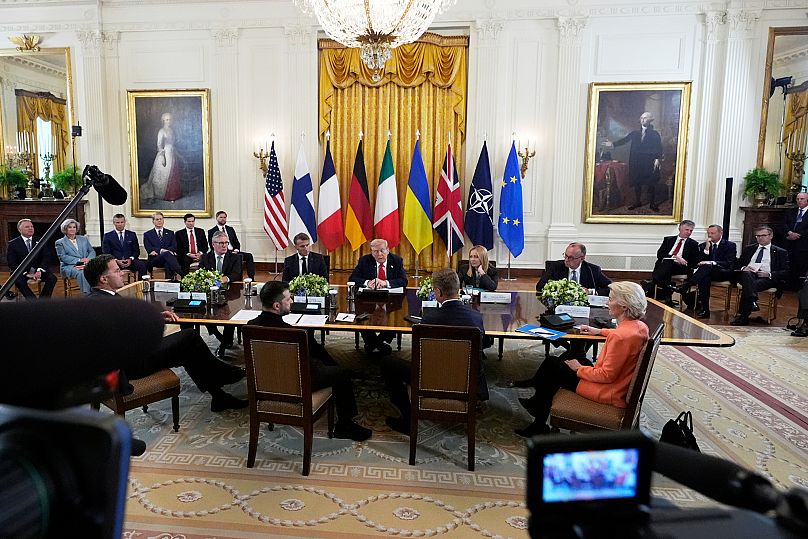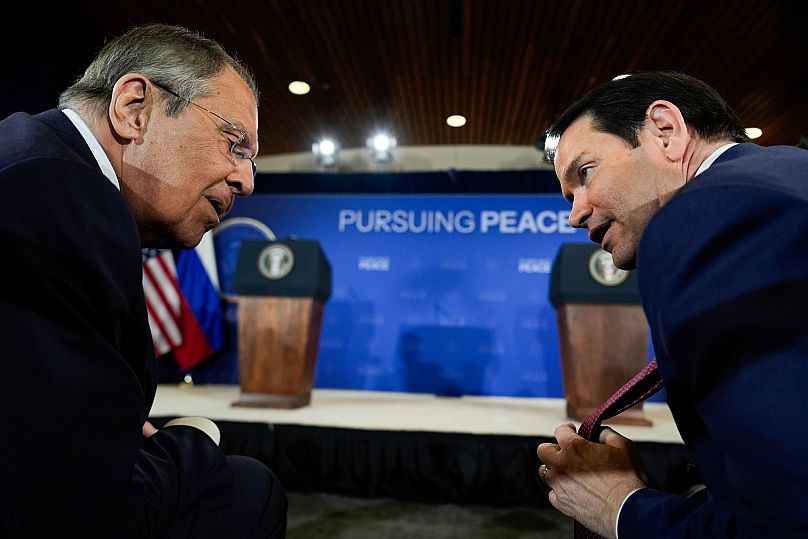No Trump-Putin meeting in foreseeable future — this is why

There are "no plans" for US President Donald Trump to meet his Russian counterpart Vladimir Putin "in the immediate future", a White House official stated on Tuesday.
Ukraine, together with the European allies, has called for a ceasefire at the current frontlines of Russia’s war, seeing it as a starting point for any further negotiations and ultimately any future deal.
Kyiv has not changed its stance and has been pushing for this plan since the beginning of the negotiations with Washington.
Moscow's position hasn't changed either. For the Kremlin, a ceasefire is off the table, but Russia still wants a meeting between Putin and Trump in Budapest to take place, two months after their Alaska summit.
For Trump, the current contact line is not the first step, but rather a final agreement to put an end to Moscow’s all-out war, now in its fourth year.
After his meeting with Ukrainian President Volodymyr Zelenskyy last Friday, Trump said, "They should stop where they are. Let both claim victory."
Trump added that he would meet his Russian counterpart in Budapest, "within two weeks or so, pretty quick". But preparations for the summit might take longer and involve more negotiations.
What is the summit timeline?
The US president said he wants to carry the momentum of the Gaza ceasefire deal between Israel and Hamas towards successfully putting an end to Russia’s war on Ukraine too. This is why he wanted the meeting with Putin to take place "within two weeks or so”.
To make this happen, US Secretary of State Marco Rubio and Russian Foreign Minister Sergey Lavrov are set to meet before the presidential summit.
Overnight on Tuesday, US media outlets reported that even this first step could be postponed after the first phone call between Lavrov and Rubio, which reportedly demonstrated significant differences in the positions of Moscow and Washington.
When asked if the meeting between Rubio and Lavrov is now postponed, the Russian Foreign Affairs Ministry spokesperson called it an "information circus".
The meeting was reportedly scheduled for Thursday, when the EU leaders are set to meet in Brussels to discuss Ukraine and European defence together with Zelenskyy.
Moscow’s stance unchanged
Lavrov said on Tuesday that during the call with Rubio, the sides “confirmed their firm commitment to implement the agreements reached by Vladimir Putin and Donald Trump” in Alaska.
Trump said that at the Alaska summit, Putin assured him that he wants to reach a peace agreement to put an end to his war against Ukraine.
Trump's former envoy for Ukraine negotiations told Euronews earlier in October that Putin also promised Trump to meet with Zelenskyy.
Ever since, the US president has been trying to organise the direct Moscow-Kyiv talks, but the Kremlin rejected this opportunity in the same way as it has been saying no to a ceasefire.
On Tuesday, Lavrov said Moscow has not changed its position since the Alaska summit and the idea of "immediately stopping’ hostilities means forgetting what Russia calls “the root causes of the conflict."
"Calls for an immediate ceasefire without addressing the root causes of the 'Ukrainian conflict' contradict the agreements reached by Putin and Trump in Alaska," he added.
According to Moscow, the “root causes” include Ukraine's aspirations to join both the EU and NATO as well as NATO's alleged violation of commitments not to expand eastwards, the Ukrainian government's alleged discrimination against ethnic Russians and what Putin calls the "denazification" of Ukraine.
Putin and Russia have used these false arguments to justify the full-scale invasion of Ukraine in February 2022, but failed to provide evidence for any of these allegations.
Moscow blames Europe
European leaders and Zelenskyy issued a joint statement on Tuesday calling for a ceasefire along the current front lines in Ukraine.
"We remain committed to the principle that international borders must not be changed by force."
Sergey Lavrov accused the Europeans of pushing for a ceasefire to “resupply” Ukraine with weapons, saying this is the only reason why the EU, together with Ukraine, is insisting on a ceasefire deal.
‘Moreover, (French President Emmanuel) Macron said in the past that this ceasefire should be without any preconditions, including, he said publicly, (that) no one would be able to restrict arms supplies to Kyiv,” Lavrov said.
“The cat is out of the bag, and it immediately became clear why this ceasefire was needed."
Lavrov also accused the EU of encouraging Kyiv to “attack civilian infrastructure and civilians on the territory of Russia,”
Russia has been continuously attacking Ukrainian civilian infrastructure across Ukraine for over three and a half years since the beginning of Moscow’s full-scale invasion of Ukraine.
Today




